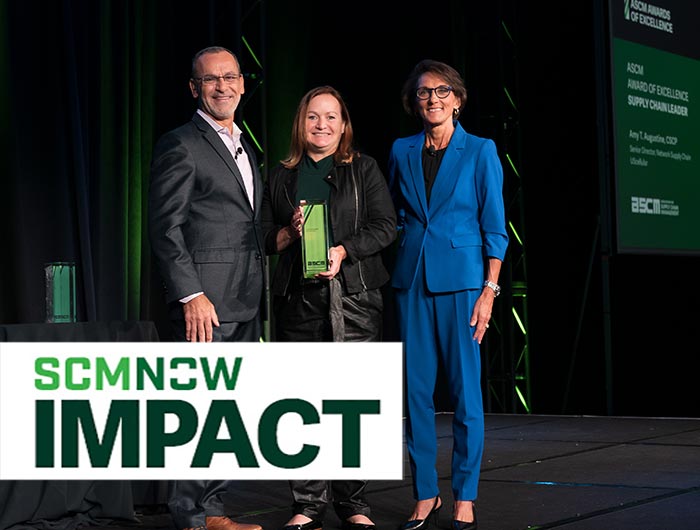The 2023 ASCM Salary and Career Report was just released, and all of us at ASCM are thrilled that the findings continue to be excellent. Job satisfaction is sky high, with 96% of supply chain professionals planning to stay in the field for at least the next five years. On a scale of 1 to 10, 65% of respondents rate their career satisfaction an 8 or higher — a remarkable number. Furthermore, in the United States, the median income is $98,570, up 3% from last year. And 48% of U.S. respondents earned a salary increase of 8% or more; in Canada and Europe, it was an impressive 11%.
Once again, education makes a big difference in supply chain careers. U.S. respondents with one of ASCM's APICS certifications report a 27% higher salary and a median cash bonus 45% higher than their noncertified peers. In fact, the median salary for a supply chain professional holding one APICS certification is $100,000.
Job stability in our field is also exceptional. Of those respondents who changed jobs, few did so as the result of a layoff or dissatisfaction with their employer. This likely means jobseekers had options, allowing them to ask for more money, benefits or flexibility. Most job changers (21% in the U.S.; 24% of Canadians) were looking for a higher salary or more responsibility. In Europe, a whopping 25% moved to a different area of the supply chain, demonstrating clear potential for supply chain career progression.
Equity goals within reach
Unfortunately, there’s still a significant career discrepancy in terms of diversity, equity and inclusion: Women with two years of experience or less have higher salaries than their male counterparts, but gender inequity persists in subsequent years. The problem is most significant for those who have been in the field for 20 years or longer, and this inequity is particularly severe in private companies, with the pay gap at 10% (it’s 4% at public companies). Presumably, these numbers mean that women who were making smaller salaries when they started their careers have been unable to catch up to their male counterparts. Still, it’s heartening to see pay equity for the next generation of female supply chain leaders. Hopefully, this is a sign of things to come for women in supply chain.
Last year’s survey reported a 14% pay gap between Black and white respondents; now, the number has narrowed to 4%. Like the inequities witnessed in compensation by gender, private company practices appear to be one of the root causes: While compensation is higher overall, salary disparities among people of different ethnicities are greater. There’s still work to be done, but clearly, progress is being made.
Achieving work-life balance
Even though just 35% of respondents agree that “the public understands the value of supply chain professionals,” an impressive 82% say that they’re proud of the work they do. About three-quarters (72%) work 35-45 hours per week, achieving that goal of work-life balance, and about half (47%) are not expected to check email outside of work hours. A lucky 61% of Europeans receive at least five weeks of paid time off, while 55% of Americans earn three-to-four weeks. Plus, 61% of respondents globally say they’re encouraged to take vacation and recharge.
Speaking of which, as summer approaches, we all deserve a moment to take a break and reflect on the past year: What’s going well? What needs changing? How can we ensure a successful and sustainable future? Begin by taking a look at the full report to discover more new and fascinating insights about our profession. It’s a great time to be engaged in supply chain, and the report reflects the commitment and recognition supply chain professionals have for our industry.
Next, sign up for the members-only webinar The Supply Chain Profession in 2023 Salaries and Careers Across the Globe, which will share further insights. Not a member? You can join today for just $10 a month.
Finally, make plans to attend ASCM CONNECT 2023 in Europe or ASCM CONNECT North America. We’re all in this together, so let’s come together and connect over our shared passion for supply chain.



